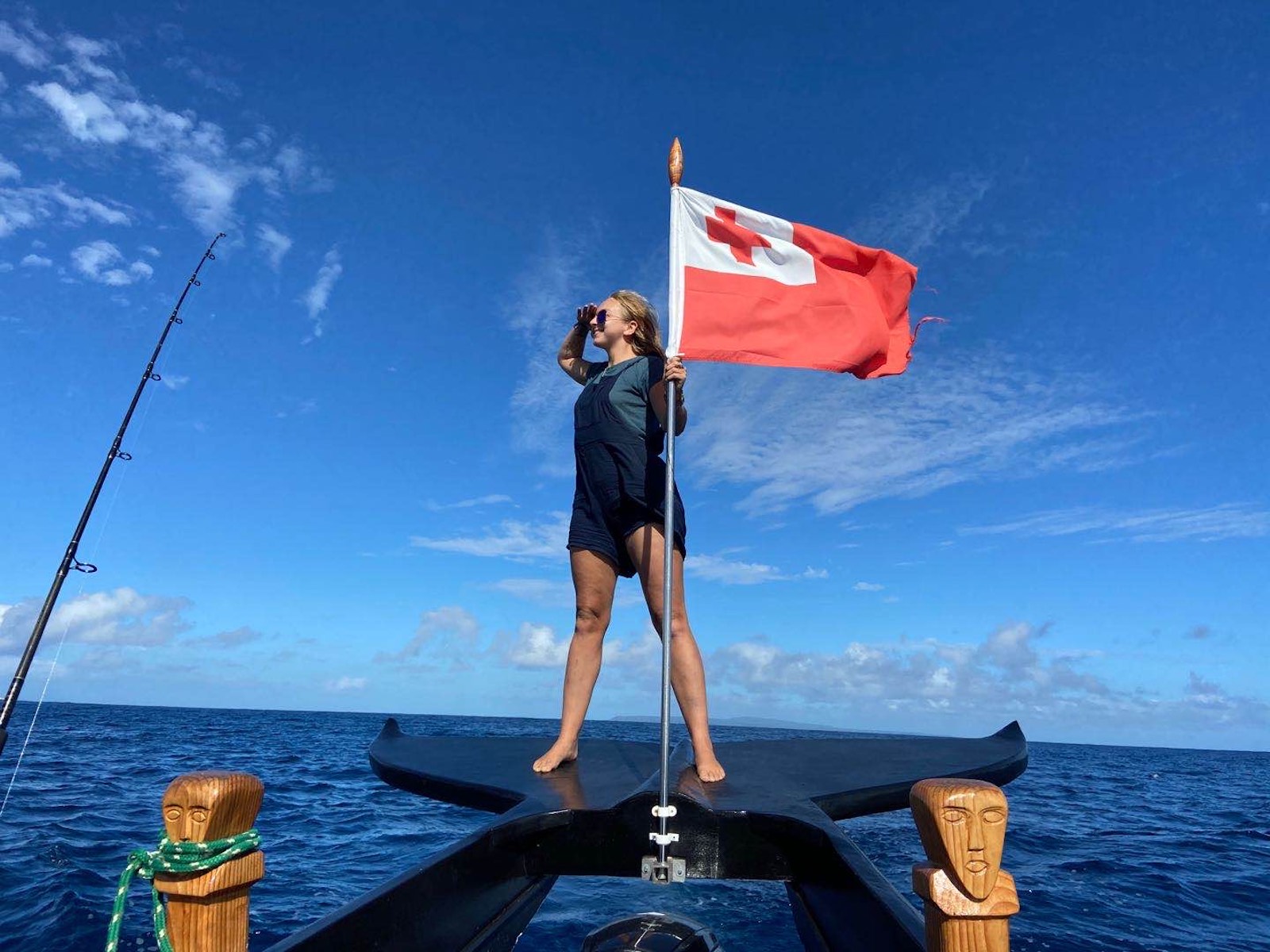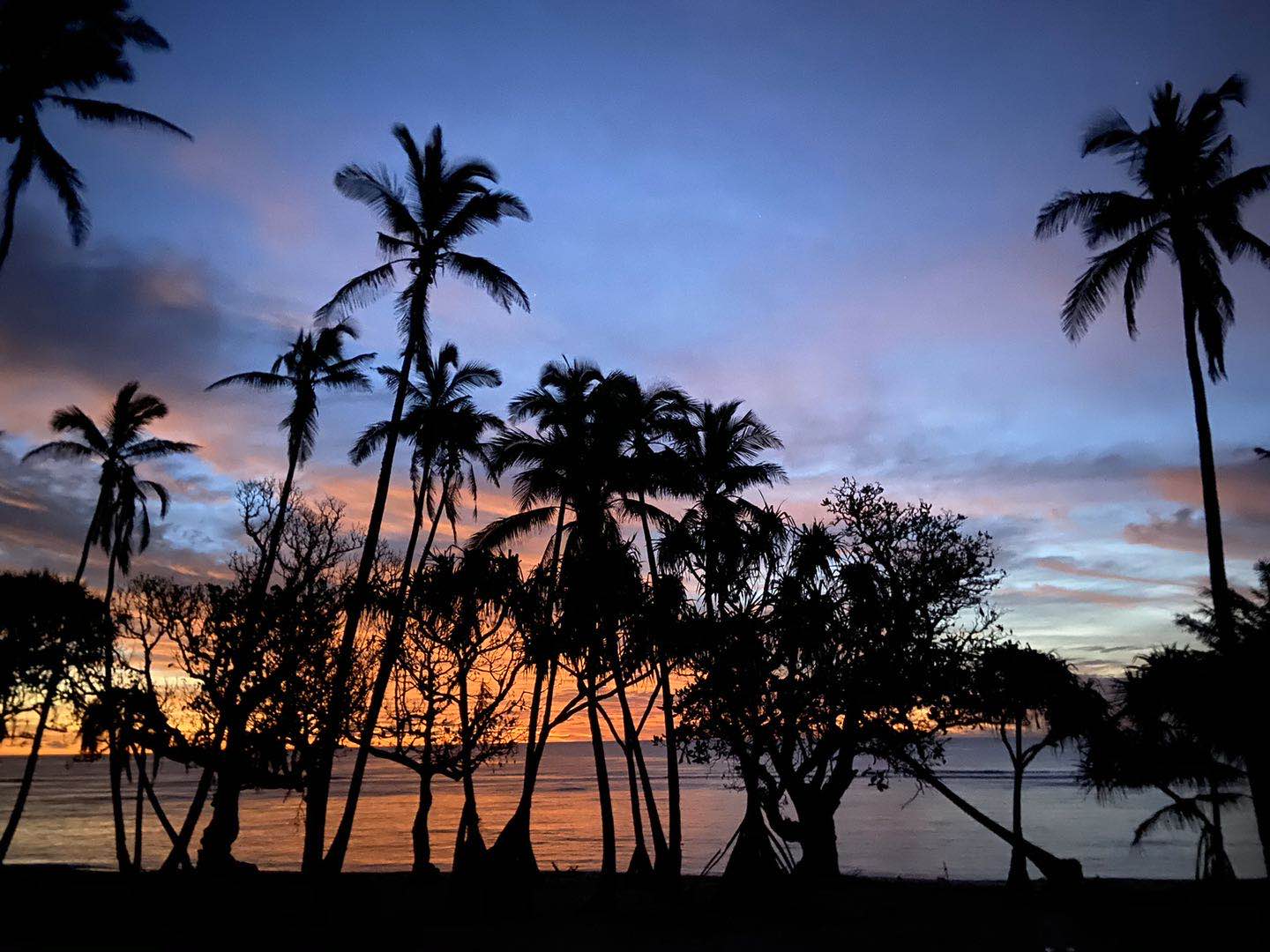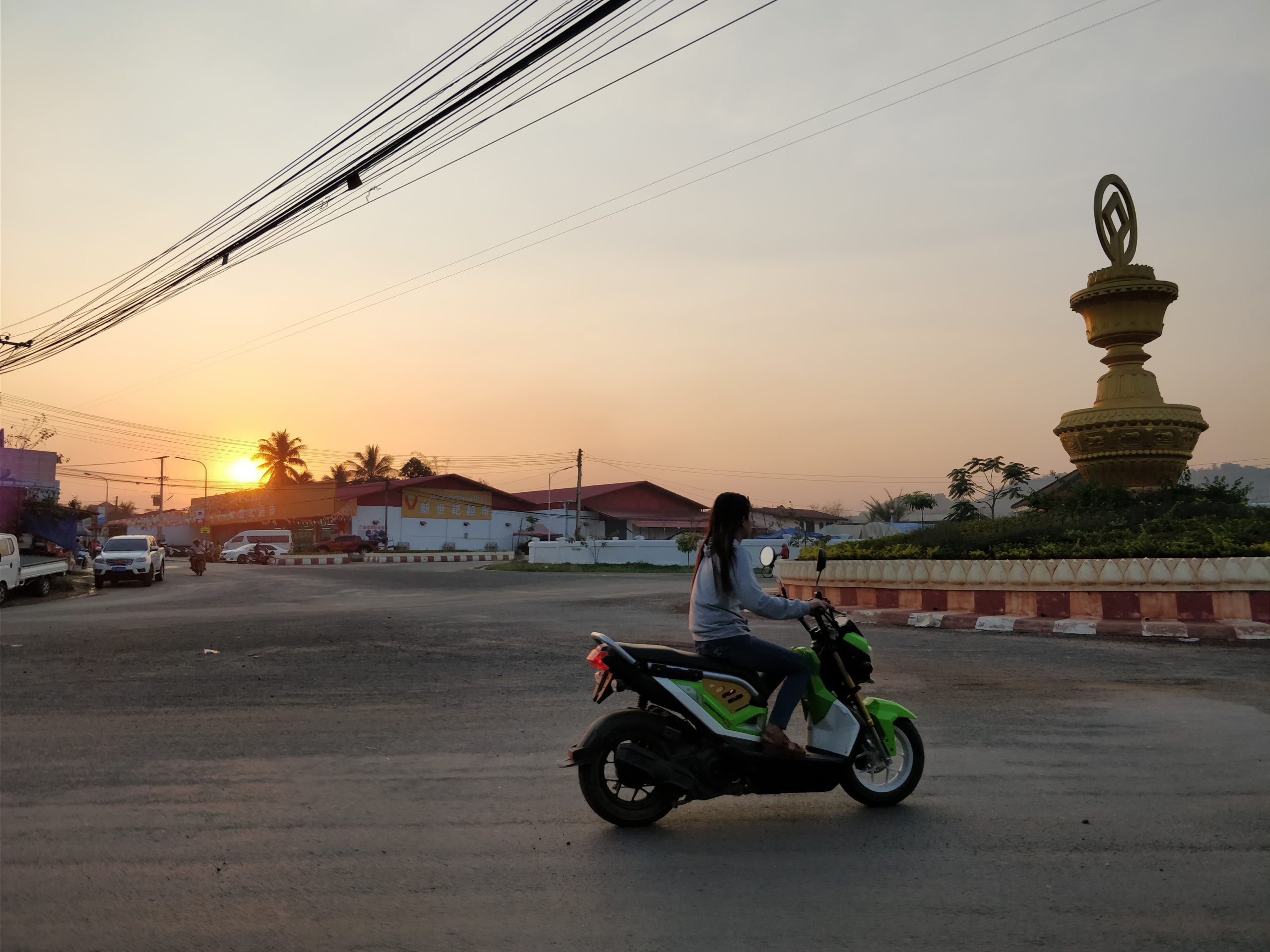Can You Really Trust Every Travel Blog? Not Really…
Before, during, or after – whenever it is, you’re bound to turn to Google or to a travel blog to help you with planning and researching your travels. But can you really trust what travel blogs say online? And how can you use that information online to help you the most?
As someone who writes about travel for a living, and can be referred to as a “travel blogger” (although I never use that term to describe myself) or someone who writes a travel blog, let me give you some inside tips.
Travel Blog in Tonga
This topic actually came to mind recently as I wrote some blogs (on another website) about Tonga. Just your usual ‘top 6 restaurants’, ‘best places to stay’ etc. kind of blogs (except the ‘Top 5 Bars’ one was hard to write, since there are only really three in the country.)
I’ve spent a year and a half almost in Tonga now, and I’ve spent that time trying out pretty much every establishment in terms of food and drink. Again, there aren’t that many.
There really isn’t much on the internet about Tonga, so I thought I’d do a travel blog to try to put together one of the internet’s largest collections of travel guides for Tonga.
When I started writing, I realized how natural and easy it was for me. These are literally my thoughts, feelings, and experiences – no research to be done online since… Well, there isn’t that much, and I think my experiences over the year give me more than enough information for a lot of it.
Funnily enough, I posted a few of the blogs in a Tonga Facebook group I’m part of. Just an area where people chat about where to buy things, the location of something etc. I did not expect the reaction I received – at all. I had posted the ‘5 Best Bars’, ‘5 Best Restaurants’ blogs and received backlash of feedback criticizing me for what I’d written about these places. The criticism came from owners or friends of owners of the places I’d featured. I was so surprised. This backlash came from the small bits of criticism I’d written about the businesses, seemingly ignoring the 95% positive stuff I’d written – and the fact that I featured them in the blog in the first place!

So What’s The Problem?
Obviously, I’m still sour about this. (And annoyed I shot myself in the foot and now can’t visit my favorite restaurants!) But that’s beside the point. It got me thinking.
The blogs I wrote were some of the most honest blogs I’d ever written, and some of the most useful. I really know Tonga. I know to dine out here. And I really understand travel between the different islands. And I definitely know the best places to drink. In fact, there is probably no place in the world I know better right now. I haven’t lived in my hometown for years, and everywhere else I have lived definitely has too many restaurants or bars for me to be able to visit them all and give a fair review of them.
Travel bloggers don’t do that, though. Someone who writes a travel blog doesn’t (in general) spend months in one location researching their surroundings to give honest and fair views. I know, because I am one of them.
When I first started out writing a travel blog, I did so under the guidance of another travel blogger. “Just write some articles on the best AirBnBs in the city”, he said. Or “Put something together on the best vegan restaurants there.”
I was writing about Beijing. I had never stayed in an Airbnb in Beijing. And plus, I’d only just arrived there! How did I know all the vegan options? He assured me that Google would be my best friend. And sure enough, I managed to put something together based on the information I found on Google.
But… I wasn’t proud of what I’d written.
What did the people of Tonga want? A travel blog from someone who hasn’t even been to Tonga writing a ‘Top 10 Places to Stay in Tonga’ blog? Or a travel blog from someone who visited Tonga for the weekend and clearly only stayed in one or two places but instead decides they know enough to write about them all?

Don’t Trust Every Travel Blog!
The message I’m trying to get across is not one against travel bloggers. I am one myself, and I too use Google multiple times a day – a lot of which is searches on travel-related things. Without the ‘travel blog’, there wouldn’t be that much information out there at all!
But perhaps we should be a bit more conscious about who is giving us information, where we get the information, and how we use the information.
I’m pretty confident in saying that very few (if really any) of these travel bloggers writing about the “10 Best AirBnBs in Paris” have actually spent a few weeks staying there. Instead, information is just constantly shared and recycled. Bloggers change words. Mix it up. And publish another blog.
So What Can I Do?
There are millions of travel blogs out there – and millions of travel bloggers. It’s easy to get lost in the information. Tonga is an anomaly, since there is really very little competition.
But in most places in the world, most topics are not like that – and everyone is fighting for that top place on Google.
How can you cut through the noise?
Well, there are a few things you can do.
Do you have a trusted travel site you use? (This one isn’t too bad!)
That way, you will always be able to trust what goes on the website. This is usually so for some big websites, including something like Lonely Planet. (Although I did once write a blog on how the Lonely Planet article for the Solomon Islands needs a re-work).
Do you have a favorite travel blogger? Or maybe you follow someone on Instagram? A lot of the time these people are happy to answer questions on social media, too. So maybe you can ask!
Facebook groups. A lifesaver for me! I’m part of a lot of travel groups, and if ever I’m looking for a good place to stay or eat, or any other recommendations, I’ll ask in there first. Big travel groups are bound to have some locals in there from the place you’re planning to visit – and who knows a place better than the locals! Tips from the best.
Think about what you’re searching for. If you’re searching for “the best places to stay in…” then you’re expecting that someone has stayed in a place for at least a few days or weeks. This might be a good basis to go with. Maybe you can learn more about areas to stay in. But you’ll want to back this up with a lot of other research, for example, reviews on booking websites.
Check the date! Don’t forget, the blog could be years old, too! Maybe that place doesn’t exist anymore. Make sure to check when the blog was written or last updated. That helps with whether to trust that travel blog.

Keep Reading Travel Blogs!
As I mentioned, I’m certainly not against travel bloggers. And of course, what they write about is not limited to giving reviews or publishing ‘best X’ blogs. There is so much more to travel blogs than that!
But having been on the other side of things, as a writer, I have always been much more conscious about what I search for, what I read, and what I trust in a travel blog.
And I recommend you to do the same!




Thanks for sharing. I’ve often found myself feeling “naked” writing yelp reviews (a former yelp elite here only losing my title because of lack of enthusiasm during COVID these past 2 year) and Google reviews on my local mechanics and restaurants. I think until one starts writing reviews himself/herself, it’s hard to understand the mentality.
I do agree that whether it’s seeking best restaurants, hotel stay, or country to visit, following a person (blogger, youtuber, etc) is better than just blindly reading an article that showed up first on the Google search. In my own experience with Yelp, I find that often I’m not looking for specific keywords that entice me to try a new restaurant or experience, but I rely on someone with my similar taste and preference.
I love DM’ing bloggers and influencers because often I find that what is said in private is much more truthful. It’s not to say that public figures are hiding things but we can all understand that a public speech in front of 10,000 people is much different than a private conversation over a drink on a rooftop bar. And some bloggers don’t respond. I don’t take it personally. Just move on.
I’m sorry to hear you can’t comfortably visit your favorite Tonga locations. For this same reason, I almost always publish any reviews I want to write after I leave the venue. 😛
Many travel bloggers are receiving benefits from the places that they are writing about without any disclosures. Therefore, you are getting only positives.
Zoe nailed it
I don’t think a warning not to trust all travel blogs is helpful … because people who are dumb enough to believe everything on the internet probably won’t understand your point. If you can’t differentiate between the good and the bad, you shouldn’t be booking travel. And how do you tell the difference? The answer is the same as always … research, careful reading and research. As far as being attacked from something you posted on FB, just respond by repeating the truth: you’ve lived there for 18 months and this is what you’ve found. A restaurant owner who doesn’t want your business because of your 5% negative comments can’t be trusted anyway.
“As Cherine commented, clickbait. In the end, the blogs are about volume of posts. Page views and clicks drive revenue metrics.” Clickbait and the most eyes on the article. Years ago, I stopped reading anything that started out with “For more information, go see my blog .” Or “I just did this super awesome thing and you can learn about it on my blog .” And then a week later the author would be bragging how many hits he got on his site. Yeah, no. You got hits because you basically forced people to go there.
Clickbait has also gotten rampant. Sensationalism aside, the tips, the “best of,” the deals and all the rest are all forms of clickbait. I quit reading past the headlines on some articles that cross my various feeds because I know exactly what information they will provide (nothing). Instead I’ll go do my own searching and often find the real answer.
I don’t trust bloggers. I never have. (Sorry!) The same perception that happens when the someone continually posts the perfect Instagram photos (family, person, animal)… it’s a lie. When you blog about a place, I wanna know the good, the bad, the ugly. Don’t blather on about this fabulous boutique Airbnb and not disclose you stayed there for a month for free. Don’t tell me that this restaurant serves the best when you didn’t eat there, but they served you free drinks every night for 2 weeks. LOL I think I’m lacking trust, right?
Right on the money. Thank you for a nicely written, honest article.
Fortunately, i’m old enough to have started traveling before the web existed, and our travels took us way off the beaten path.
These days, if i can find a hotel/beach/restaurant on the web, it’s a sure bet i will not go there. Today’s travels involve going to a Blah Hotel upon arrival and then spending the day going up and down the streets looking for places that care for people more than stars. Very easy to find. Happy Travels!
There’s other factor to consider, which is that what one person’s good food or elegant hotel might not be what to your taste or expectations. It’s happened to me with friends’ recommendations that turn out to be huge disappointments. So what works for me is looking for reviews of places I liked and seeing what other places were reviewed by that person, whose taste you think you might share.
Outstanding post Zoe, There are a lot of things one can learn on the Internet but in the category of travel to shall we say “unique, rarely visited” locations, you just have to take a leap and go there to see for yourself, (I believe this might be called “Discovery” of parts of our world that you’re simply curious about).
For whatever reason your post has triggered me to recall a Scuba Diving trip I took in 2000 with my wife and our just under 2 year old daughter to a small Island in Fiji.
We’d been to Fiji 4 times prior to this trip but we chose this location based on this particular resort being named the “#1 destination Dive Resort in the World” by the readers of an actual print magazine publication called “Rodale’s Scuba Diving”, (NOT an Internet “Travel Blog”).
Suffice it to say when we left this Island after 7 days we felt like a convicted Felon might feel upon Parole, LOL…
This kind of reminds me of something my dearly departed father used to say “I don’t believe ANYTHING I hear and only HALF of what I see”!!
I love that quote from your father 🙂
(In the following, my intention is not to offend anyone but tell it as it is. I write an online column for the largest print publication in the world . . . other than the Bible. Ha.)
The problem is far greater.
Even if a given service does not have a conflict of interest, it can still be fatally flawed.
– Search for a steakhouse in Anytown, USA. Top steakhouse has a 4.3 rating and Sizzler has a 4.6 rating.
Not the same category. Not the same customer base.
– Morningstar (the mutual fund rating service) was roundly criticized for the aforementioned categorization problem about 20 years ago. Municipal bond funds (for conservative investors) were evaluated side-by-side with growth stock funds (for aggressive investors). In 1999, muni bond funds had 1 star and growth stock funds had 5 stars. Trusting but unknowing retirees went with Morningstar’s 5-star recommendation. In 2000, the house of cards collapsed.
The conflict of interest runs deeper than just the blogs themselves. It’s about which blogs one even finds in a search.
– Google has been criticized for prioritizing search results based on web site’s Google Ads participation and revenue generation.
– Google will present different search results to different people depending on one’s search history.
– The blogs know Google’s algorithm — a part of which weights what everyone else is talking about (which is separate from cross-linking). Any given blogger might have a truly unique article — a topic that would not ordinarily come to mind — the next thing one knows, all of the other blogs have an article on the same topic. The topic of the present article might well have just popped into the author’s mind — but the present article comes a day after another article on the same topic on another site. Hmmm. Google’s algorithm says “this must be what everyone’s talking about” and moves the articles higher in search ratings.
One blog — we all know who — hires content producers right out of college who have absolutely no meaningful experience in the points game. All too often, an article is simply restating card benefits from an issuer’s web site. And, in some cases, one actually loses knowledge by reading their articles — incorrect information having been presented.
As Cherine commented, clickbait. In the end, the blogs are about volume of posts. Page views and clicks drive revenue metrics. Pure and simple. So many articles we see are republications of articles published just a few days ago, a few weeks ago, a few months ago — with a little rewrite to fool Google’s algorithm but no effective change in content / story. Routinely, I see articles that reference a card granting SPG status !!! or that identifies the best business class seats on American Airlines’ 757s and 767s !!! Or, oh my gosh, you absolutely must get this dog poop card and here are 5943 reasons why . . . operators are standing by.
In the end, the travel blogs play readers like a fiddle.
That being said, I have found MtM to be run by points geeks and appreciate their tips and tricks. Who else published Javascript that will load all AMEX offers on a given card? Who else has written articles that say “don’t use OUR referral link because there’s a better one here”? Yeah, MtM is a business. But, I find the team to be kindred spirits with the points community.
Thanks for sharing your thoughts Joe and you make a lot of great points. Google has become the name of the game for many.
Many that talk about less visited placed such as Tonga and the Azores haven’t actually been there. Or have just gone to the hotel and eaten at restaurants and one nothing more. I’ve actually been to Tonga and the Azores (well, two of the islands, 1 for 18 days and one for 2 days) and can tell when some one is writing and hasn’t been there. There is a huge difference. You don’t need to stay at a chain hotel to have a great time or go somewhere that everyone has heard of to have a great time!
I would advise people to be wary of sites that have monetized links, such as “New: Chase Sapphire Preferred 100k Offer” with an advertising disclosure that states, “This site…receives compensation for sending traffic to partner sites. This compensation may impact how and where products appear on this site (including, for example, the order in which they appear).”
I have no reason to believe that you aren’t an honest, good-intentioned person; but if you are writing for a website that warns me of potentially being disingenuous, I’m going to take every recommendation/ranking therein with a grain of salt.
sk9879 – to play devil’s advocate: we have that disclaimer. It’s required for any site that uses referals or ads that generate money. I tend to think we do a good job of being honest. I don’t see that disclaimer as a warning about potential dishonesty; rather, it seems to me like being open and clear from the beginning.
I hope you find good content here. Especially for Zoe and I, we travel to places a lot of others don’t go to, so I hope you find that info worth reading 🙂
Yes, I cut and pasted that clause from your disclaimer. You can spin it however you like, but the wording is clear. Miles to Memories may not play favoritism to sponsors, but the disclaimer says you may (and I’ve seen other sites with this exact same disclaimer turn into an unapolagetic shill).
Note that my comment was to be “wary”, not to avoid (I’d be a hypocrite otherwise). I glean good travel info from a variety of sites, blogs, and boards, including this one. And I’ll give this site credit for keeping an open comments board that fosters discussion and helps maintain accountability, unlike, e.g., That Particular Guy’s site.
The disclaimer is required by law and most every site you read has some sort of disclaimer, affiliate relationship. Case in point is Doctor of Credit who may not use credit card links but has other affiliate links like Amazon.
It is a way to keep content free to the reader. Content is not free to create, even though many miles and points readers seem to think that is the case.
We simply hope that when we have an offer that is as good as you can get direct etc. that you choose to support us for whatever value / entertainment you have received from the site, podcast or YouTube channel. People like to talk about ad revenue but you could read every single article we publish for an entire year and it wouldn’t buy a pizza. So this is an opportunity to support the sites you feel offer you value is all.
I have no issue with affiliate links, and I understand the necessity of websites including a Terms of Service. My comment was directed specifically at the wording in the disclaimer that states the compensation you receive from affiliate links, “may impact how and where products appear on this site (including, for example, the order in which they appear)”. This statement is not required by law, and is not included anywhere in DoC’s terms (to use your example), to the best of my knowledge.
I’m not assigning any blame at all. My initial comment was simply pointing out the irony of this specific post (discussing the trustworthiness of travel sites’ “top X” or “best of” lists), with the aforementioned clause included in your disclosure.
TPG is the worst!
And too many of them (Live and Let Fly and View from the Wing in particular) now only sensationalize the latest incident of passenger misbehavior in airplanes/airports. We’re all tired of that. You’re awesome Zoe!
Some are just clickbait